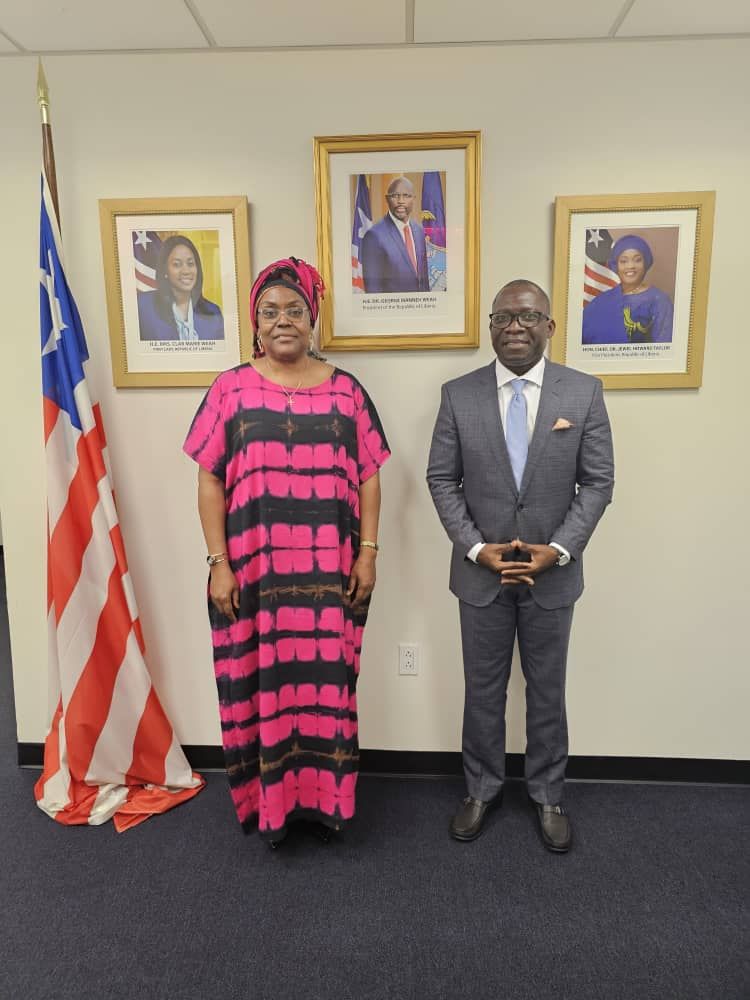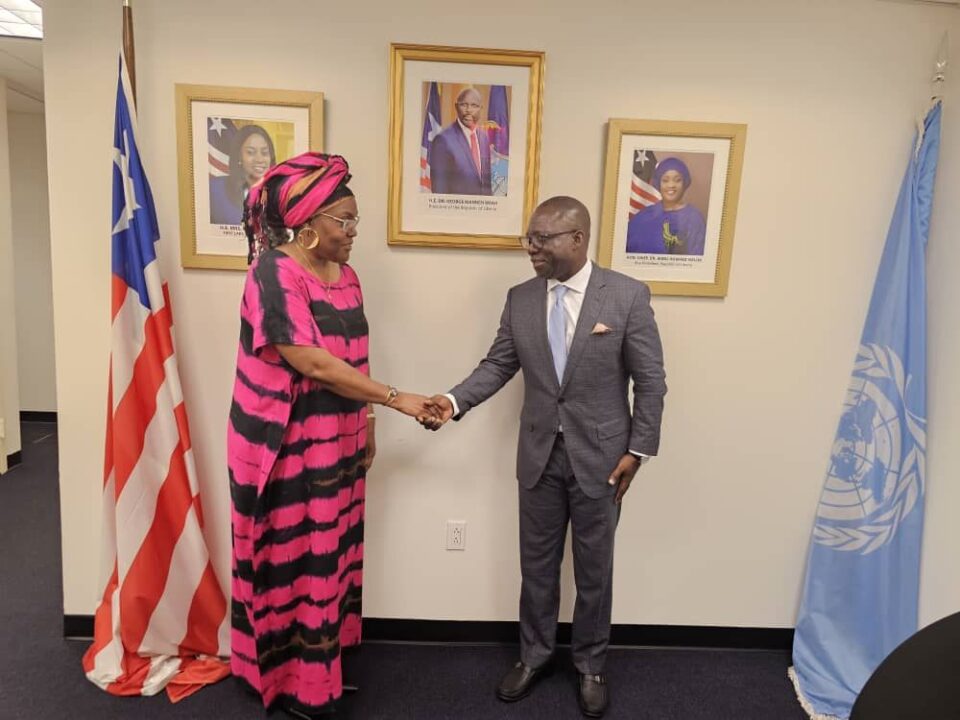PHOTO: (L-R) Liberia’s Permanent Rep to UN, Sarah Safyn Fyneah & UNFPA WCARO RD1, Sennen Hounton
Liberia’s Permanent Representative to the United Nations and UNFPA West and Central Africa Regional Director hold Bilateral Discussions on Driving the Region’s Development Goals
New York, 11 September 2023— UNFPA West and Central Africa Regional Director Sennen Hounton has urged countries in the region, including Liberia, to consider more domestic investments in sexual and reproductive health and rights-related programmes to achieve national development goals, a UNFPA press release says.
Speaking recently in New York when he paid a courtesy call on Liberia’s Permanent Representative to the United Nations, Ambassador Sarah Safyn Fyneah, the UNFPA West and Central Africa Regional Director underscored the need for Liberia to advance equal opportunities for adolescent girls by addressing the key barriers that perpetuate their marginalization including teenage pregnancies.

Mr. Hounton commended the Government of Liberia for its renewed commitment to advancing the development needs of the country’s youthful population, particularly the current emergency programme to address the needs of young people who use drugs and harmful substances.
In response, Liberia’s Permanent Representative to the United Nations, Ambassador Sarah Safyn Fyneah, congratulated Mr. Hounton for his appointment as UNFPA West and Central Africa Regional Director and reaffirmed Liberia’s commitment to the Commission on Population and Development, in line with the African Common position as ascribed in the Addis Ababa Declaration.
“Sexual rights and sexual reproductive health are all part of the SDGs goals, and it should be embraced and supported if our shared goal is to leave no one behind,” Ambassador Fyneah said.
During the meeting, Ambassador Fyneah and Mr. Hounton discussed the current UNFPA Country Programme of support and areas of mutual interest between the UNFPA and the Government of Liberia. They also shared notes on the upcoming 2023 SDG Summit, which will occur on 18-19 September 2023 in New York.
The 2023 SDG Summit will begin a new phase of accelerated progress towards the Sustainable Development Goals with high-level political guidance on transformative and accelerated actions leading up to 2030. Convened by the President of the General Assembly, the Summit will mark the halfway point to the deadline for achieving the 2030 Agenda and the Sustainable Development Goals.
Liberia will participate in a Side Event to highlight the importance of adolescent well-being within the 2030 SDG Agenda and the Commission on Population and Development (CPD). The Side Event is organized by the current Chair of the Commission on Population and Development (CPD), the Government of Honduras, as part of the series of events commemorating the 30th Anniversary of the International Conference on Population and Development.
Note to the Editor:
About 30 percent of girls in Liberia get pregnant by age 18.
Sexual and reproductive health is a lifetime concern for both women and men, from infancy to old age. Evidence shows that reproductive health in any of these life stages profoundly affects one’s health later in life. UNFPA supports programmes tailored to what people face at different times in their lives, including comprehensive sexuality education, family planning, pre-conception care, antenatal and safe delivery care, post-natal care, services to prevent sexually transmitted infections (including HIV), and services facilitating preventive screening, early diagnosis and treatment of reproductive health illnesses including breast and cervical cancer.
To support sexual and reproductive health throughout the life cycle, services across various sectors must be strengthened, from health, including the health workforce, to education systems, even to transport systems, which are required to ensure health care is accessible. Efforts to support sexual and reproductive health service delivery rely on skilled healthcare providers who can provide timely, high-quality, and respectful care that is also affordable and accessible, functional health infrastructure, integration with other services, and the availability of essential health supplies such as contraceptives, life-saving medicines, and basic medical equipment.

